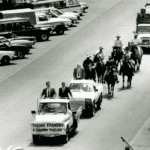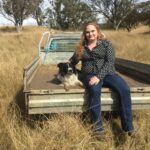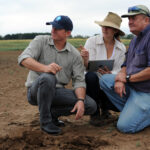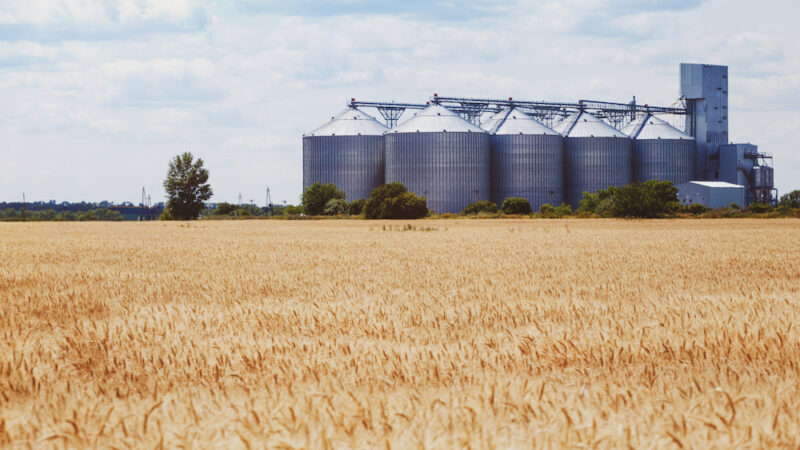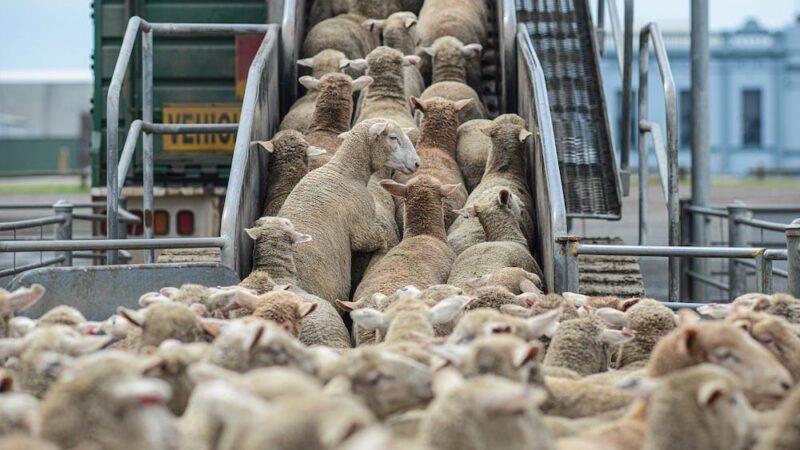Stepping into the Honour Room in NSW Farmers� head office in St Leonards, Sydney, visitors…
NSW Election: farmers share concerns
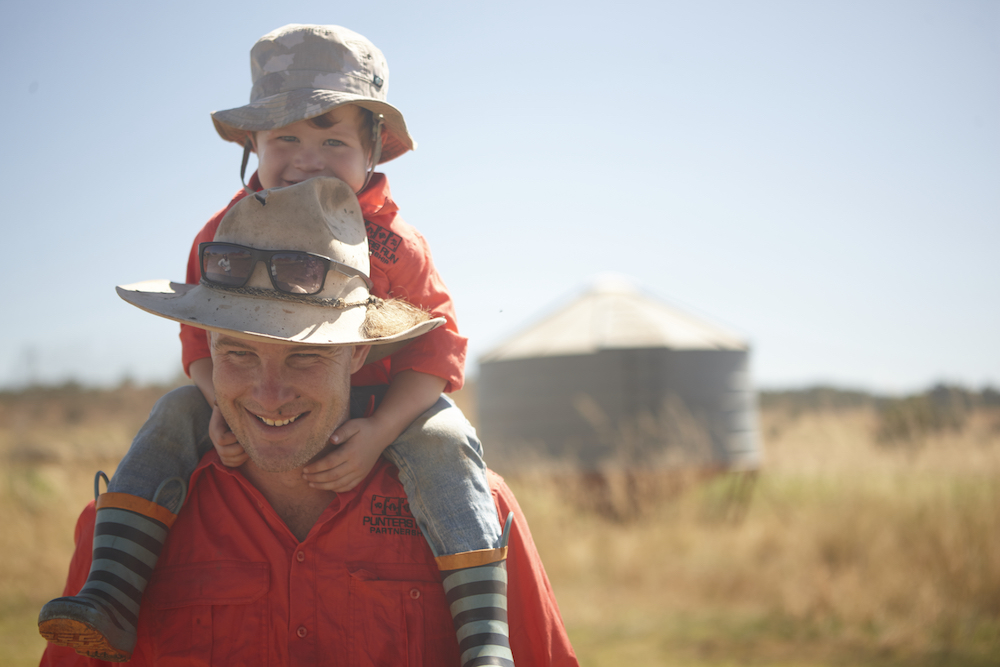
Polling commissioned by NSW Farmers shows that cost of living is the primary concern voters are taking to ballot boxes on the March 25 election. While the cost of food and groceries is at the top of the list for most voters, interest rates are not far behind � and for new landowners such as young farmer Martin Murray, rising interest rates are a significant worry.
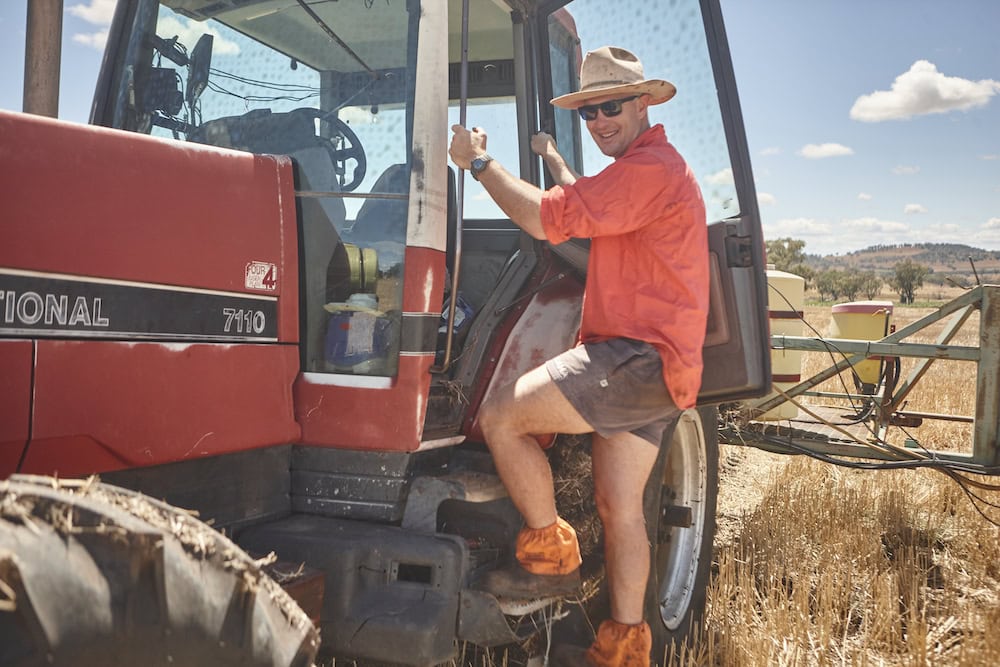
But while the NSW Government cannot change interest rates, Martin is clear on what the government can do: help farmers become more productive and profitable. It�s a sentiment shared in the NSW Farmers state election platform, which focuses on five key areas where government and industry can partner to build agriculture for the benefit of farmers, regional communities, and the consumers who rely on access to affordable, clean, and healthy food and fibre.
Relief quickly turned to concern
For Martin and his family, who run a 340-hectare cropping farm business near Delungra, relief at finally entering the farm property market in 2020 quickly turned to worry as loans across the country began to swell.
Martin said, �Like most young farmers who have just bought in, we are pretty well leveraged to the bank. Rising farm input costs have not helped. Grain and beef prices have been strong, but they have been winding back.�
Martin and his wife Rachel, who have a two year-old son and another child on the way, might be considered lucky to even be able to enter the farm property market.
Wearing his other hat as chair of the NSW Young Farmers Council, Martin�s key state election priority is to advocate for strategies to help new young farmers to purchase or lease farmland.
�Support measures including business capability initiatives, stamp duty rebates, and low documentation loans through the Farm Innovation Fund need to be explored.
�There are support schemes for young farmers in Victoria and Queensland. It�s time to bring one to NSW.�
Martin Murray, Chair of the NSW Young Farmers Council
But first things first: with Martin�s phone dropping out several times during his chat with The Farmer, improving telecommunications would also get his tick of approval.
�Delungra is a shocker for mobile service, which really can inhibit the farm business.�
Innovation is the answer
Martin wants to look to the future rather than dwell on the challenges. For him, a lot of answers lie in innovation.
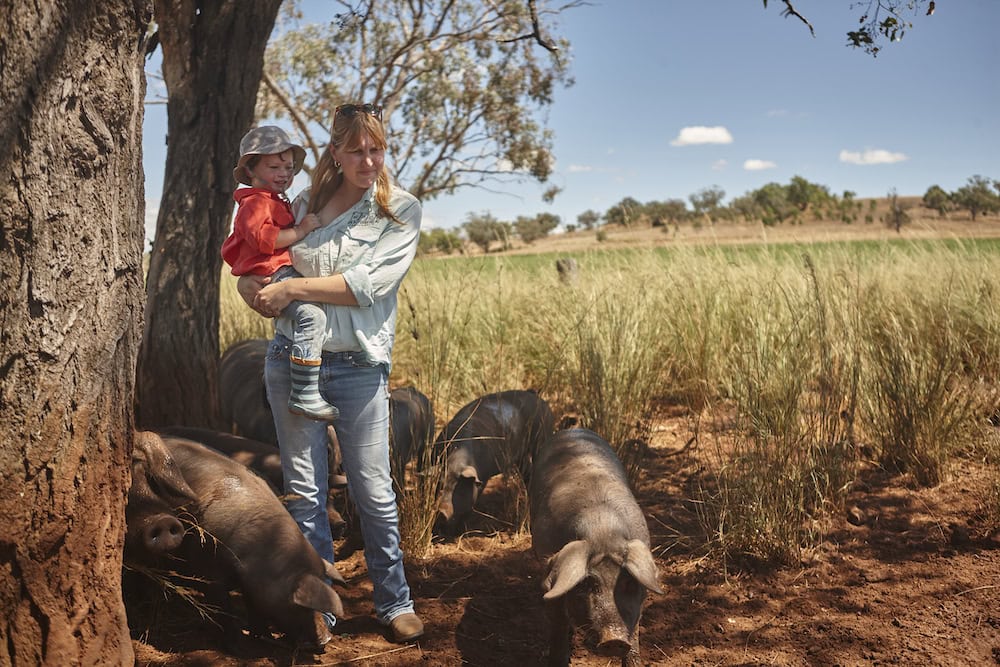
�With rising costs, we are going to need to be as smart and efficient as possible in the next few years to maximise returns from the farm.�
�Research and development is key to driving productivity and paying that interest bill. The more that can be spent on researching new varieties, new techniques and new technology, the better it will be in terms of improving farm productivity and profitability.�
Martin Murray, Chair of the NSW Young Farmers Council
As part of its state election platform, NSW Farmers is calling for the expansion of the Farm Innovation Fund and Seafood Innovation Fund beyond the $1 billion already committed to date to help build the resilience of farms. The group is also calling for the establishment of a dedicated Climate and Emissions Reduction Innovation Fund to help find emissions reduction solutions on farms, such as non-petroleum-based fuels.
Infrastructure is also key
Martin said road, rail and port infrastructure investment should also be a priority for the next state government.
�In terms of future investment for our farm, the priority would be grain storage. That would help with our marketability and efficiency of grain production. It would be much better for us to sell direct from the farm rather than use bulk handlers because we are relatively close to the Port of Newcastle.
�We grew durum wheat last year, which was exported from the Port of Newcastle. The next state government must continue to support the expansion of container exports at Newcastle, and I know that grain traders in this region back that.�
An ongoing advocacy priority for NSW Farmers is to expand access to ports, including the Port of Newcastle. Legislative changes made last year meant a fee liability to the NSW Government when the port reached certain levels of container movements was replaced with a more equitable pro-rata compensation payment. Now, the priority for the advocacy group is to push for 100 per cent of bulk grain to be delivered to port by rail.
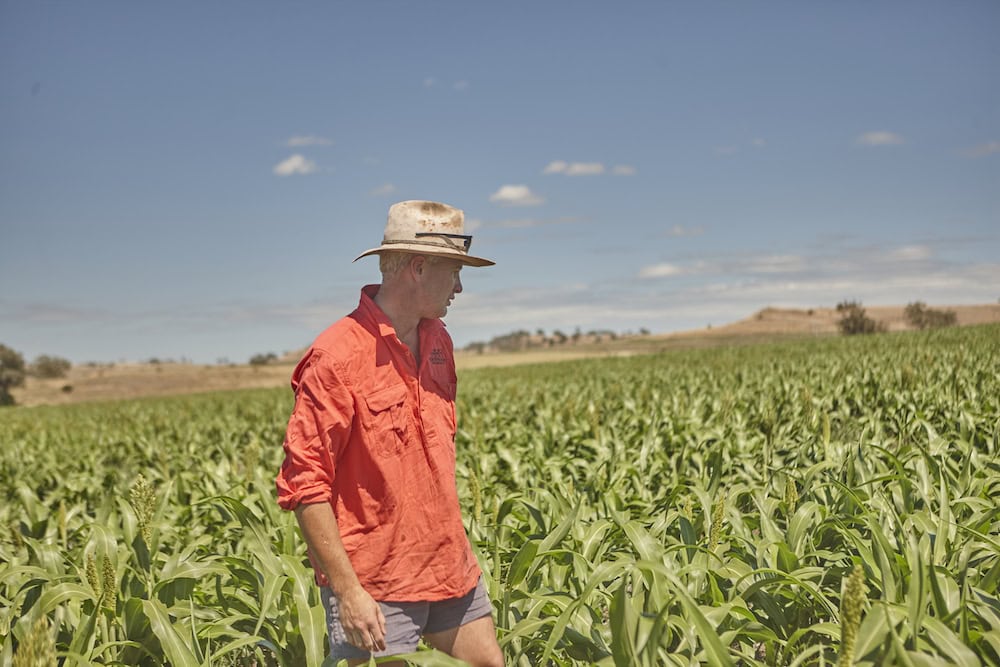
�Rail lines are improving for the transport of grain, but traders tell me the chokepoint is now at the ports,� said Martin.
At a farm level, however, the chokepoint is the state of local roads.
�The state of the roads is appalling. Our farm is at the end of a road that is managed by two councils, so we never get a look in,� said Martin.
A key request in the NSW Farmers state election platform is for greater and more sustainable funding for councils to undertake the significant road work required following severe and ongoing storms and floods across regional NSW, including an amendment to the current grants process.
The headline ask is a $1 billion commitment to improve the roads in regional, rural and remote areas � which, at the time of writing this article, had the backing of the Coalition if re-elected.
Regional debate series focuses on key issues
NSW Farmers hosted a Regional Debate series leading up to the election. The forums, held throughout regional NSW, focused on key issues for voters including environment, water, infrastructure, land use and energy, and featured the relevant Minister, Shadow Minister and spokespeople from the cross bench.
Politicians attend Environment Forum
Environment policy was the focus of the first NSW Farmers Regional Debate in Goulburn. Politicians who attended included Minister for Environment and Heritage, the Hon. James Griffin MP, Shadow Minister for Environment and Heritage, the Hon. Penny Sharpe MLC, Sue Higginson MLC of The Greens, and the Hon. Robert Borsak MLC of the Shooters, Fishers and Farmers Party (SFF).
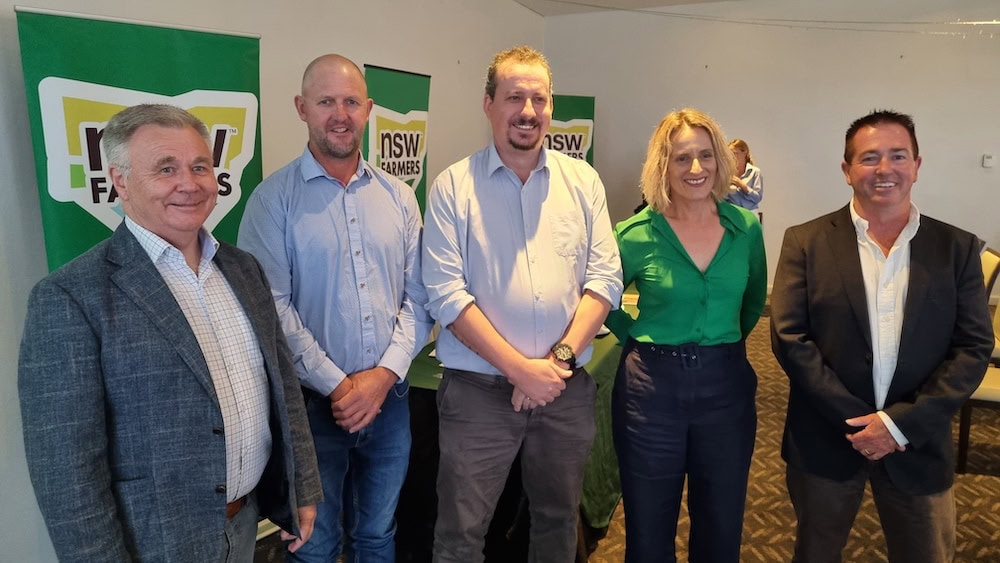
Each panellist agreed with the importance of balancing productivity and environmental conservation, the need to engage consultatively with landholders, and the need for a strong partnership between government and industry. While there was some disagreement about the approach needed towards climate change regulation, it was generally agreed that land management in the future must be incentive-based and not impeded by red tape.
Biosecurity on public land was recognised as an important issue. Going into the election, NSW Farmers has a headline policy supporting the establishment of an independent Natural Resource Regulator to enforce required management of public lands including National Parks and Crown lands. In Budget Estimates 2022, the Department of Primary Industries confirmed there had been no prosecutions made by public land managers since 2016 for animal pests.
Key issues discussed at Water Forum
NSW Farmers put water management in the spotlight at the second regional debate in Bega. Politicians who attended included Minister for Water, the Hon. Kevin Anderson MP, Shadow Minister for Water, the Hon. Rose Jackson MLC, Cate Faehrmann MLC of The Greens, the Hon. Mark Banasiak MLC of SFF, and the Hon. Rod Roberts MLC of Pauline Hanson�s One Nation.
With coastal harvestable rights and a new water sharing plan as the key local issues on the night, panellists primarily discussed water capture and the balance between agricultural productivity and environmental outcomes. The construction of new dams was a sticking point for panellists, particularly in relation to the definition of first, second and third order streams under the new water sharing plan in the Bega Valley.
Key priorities highlighted in marginal seats
With several marginal seats in doubt, NSW Farmers took a closer look at two key regional seats ahead of the election. Goulburn and Myall Lakes currently sit with the Coalition, with the former held by Liberal Wendy Tuckerman and Myall Lakes by Nationals member Stephen Bromhead.
In the seats of Goulburn and Myall Lakes, the cost of living consistently remained the key issue on voters� minds. In Myall Lakes, most voters do not believe either major party will address the issue, contributing to primary swings against Labor and The Nationals and increases in minor party and independent voters. In this relatively safe seat held by The Nationals, around a third of voters have indicated a departure from the major parties � a significant shift away from the two-party system compared to previous elections, such as the 2019 election when almost 78 per cent of Myall Lakes voters gave their primary vote to one of the major parties.
In Goulburn, polling suggests the outcome could go either way. As well as cost of living, aged care and health are key issues for Goulburn voters.
In both Goulburn and Myall Lakes, the state of roads registered as the headline issue for voters in terms of the NSW Farmers� election priorities.
If you enjoyed this story on the NSW Election, you may like to read our feature on food security.


